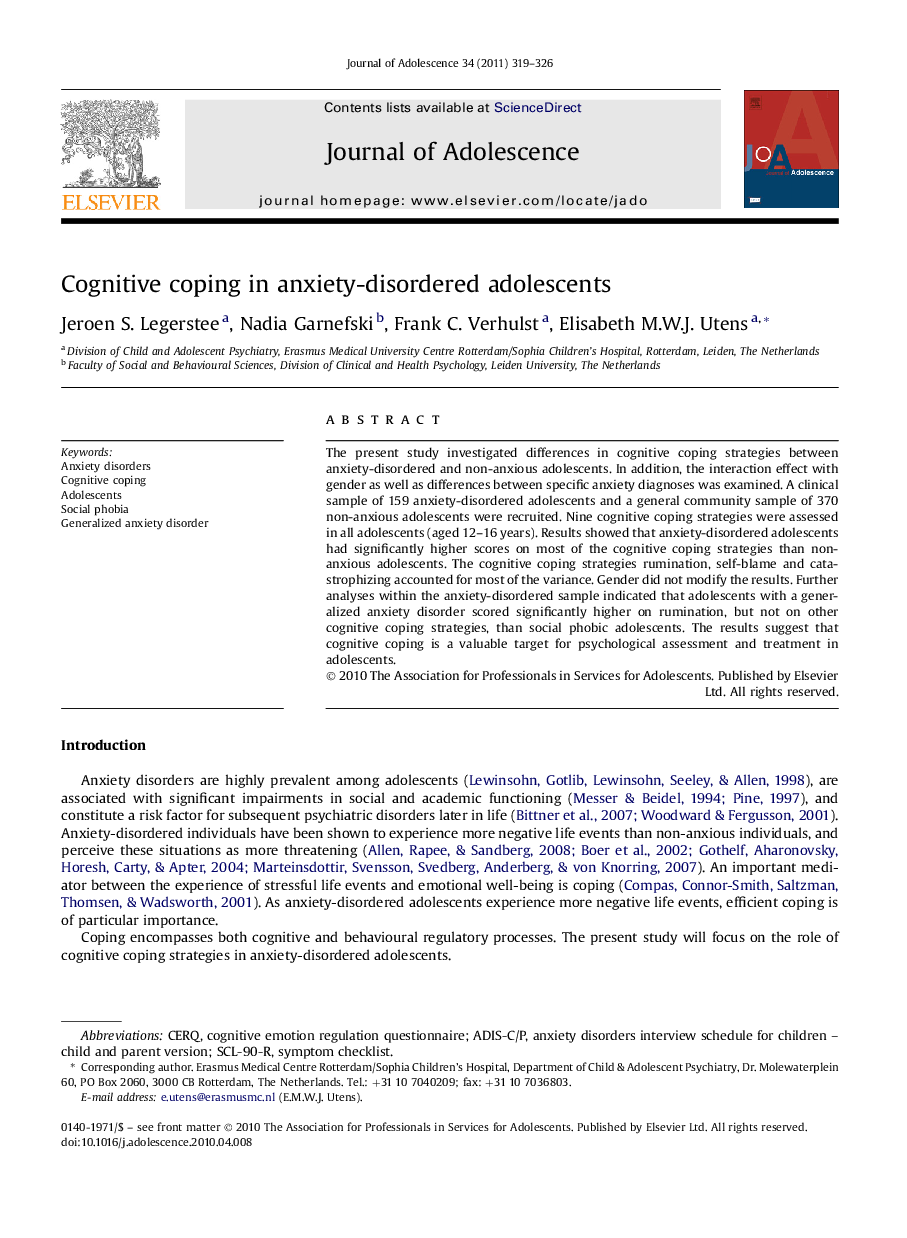| Article ID | Journal | Published Year | Pages | File Type |
|---|---|---|---|---|
| 881248 | Journal of Adolescence | 2011 | 8 Pages |
The present study investigated differences in cognitive coping strategies between anxiety-disordered and non-anxious adolescents. In addition, the interaction effect with gender as well as differences between specific anxiety diagnoses was examined. A clinical sample of 159 anxiety-disordered adolescents and a general community sample of 370 non-anxious adolescents were recruited. Nine cognitive coping strategies were assessed in all adolescents (aged 12–16 years). Results showed that anxiety-disordered adolescents had significantly higher scores on most of the cognitive coping strategies than non-anxious adolescents. The cognitive coping strategies rumination, self-blame and catastrophizing accounted for most of the variance. Gender did not modify the results. Further analyses within the anxiety-disordered sample indicated that adolescents with a generalized anxiety disorder scored significantly higher on rumination, but not on other cognitive coping strategies, than social phobic adolescents. The results suggest that cognitive coping is a valuable target for psychological assessment and treatment in adolescents.
